Transplants hit by lack of donors
Updated: 2015-05-20 07:35
By Wang Xiaodong(China Daily)
|
||||||||
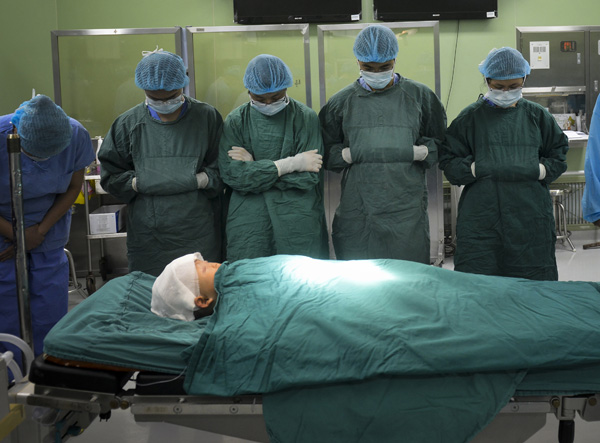
Doctors stand in tribute to 16-month-old Hanhan at West China Hospital in Chengdu, Sichuan province, on Feb 24. The boy was declared brain-dead after a traffic accident, and his parents decided to donate his organs to save lives. Lyu Jia / for China Daily
Education could help overcome tradition of bodies being left intact after death
Chen Xinguo, a liver transplant surgeon, used to perform more than 200 liver transplant operations a year in Beijing at the General Hospital of Armed Police Forces, but the number has declined dramatically this year.
"We have only performed about 10 liver transplants since the beginning of the year," Chen said. "But the situation is still better than most other hospitals. Many hospitals in Beijing haven't performed a single organ transplant operation this year because of the lack of donors."
China announced in December that it was going to stop using organs from executed prisoners for transplants as of Jan 1. Voluntary organ donations from citizens are now the only source for such surgeries.
The country faces a severe shortage of organs for transplant operations, according to the National Health and Family Planning Commission. It is estimated that about 300,000 patients every year need transplants, but only about 10,000 operations are performed.
In recent years, the health authorities have taken a series of measures to encourage the voluntary donation of organs. As a result, donations have increased rapidly, the commission said.
From January to May 12, 872 people who died in China had arranged to donate 2,311 organs, said Gao Xinpu, deputy director of the Medical Affairs Department at the China Organ Donation Administrative Center.
"The rate for organ donations per million population was 0.02 in 2010. The figure reached 1.24 last year," he said.
About 37,000 donors had registered with the center to provide body parts after death as of mid-May, Gao said.
Despite the increase in voluntary donations, the severe shortage of organ supply is not likely to be eased quickly, transplant surgeon Chen said." Voluntary organ donation is relatively new in China, and people still lack awareness and knowledge of it," he said." Besides, it is very difficult for people to change their traditional beliefs."
Chinese people often believe a complete body should be left intact after a person's death, except for individuals who have committed great sins, he said.
"Many people would feel very guilty if they donated the organs of their deceased family members," he said. "It is hard for coordinators to try to persuade a grieving person to consider donating the organ of their dead relative."
"People should realize it saves others' lives. It benefits the whole society," he said.
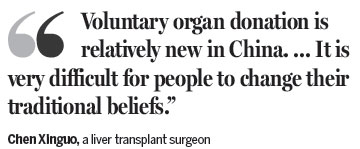
Chen said he believes more people will embrace organ donations in the next few years, with more education and publicity. Even a slight rise in the donation rate will mean a big increase in the number of organs available, considering China's huge population.
Wang Baotian, a volunteer at the administrative center who donated his son's organs in 2009 following a brain hemorrhage, said it is much easier for people to donate organs now.
"When I tried to donate the organs, I asked hospitals and Red Cross societies, but nobody agreed to receive the organs," he said. "At that time there was barely any law or regulation on organ donation, and nobody wanted to disrupt the status quo."
Chen said lack of a law that defines a person as dead by brain death in China has caused unnecessary and excessive treatment of end-stage patients, which also poses obstacles to organ donation.
"Doctors responding to relatives will, in many cases, try every means to treat a patient, even if he is declared brain-dead," he said. "So even if the families agree to donate, the organs will not be available for use because they deteriorate with prolonged delay."
wangxiaodong@chinadaily.com.cn

 Jetman duo zip across Dubai sky
Jetman duo zip across Dubai sky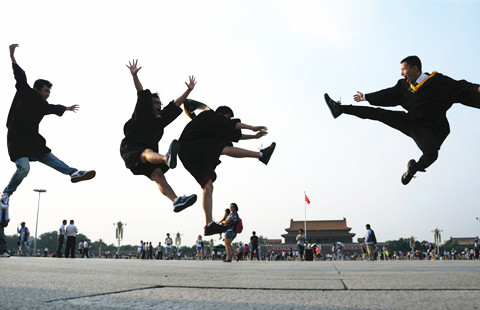
 Creativity marks graduation photos
Creativity marks graduation photos
 Ten photos you don't wanna miss - May 20
Ten photos you don't wanna miss - May 20
 In photos: Cities in the clouds
In photos: Cities in the clouds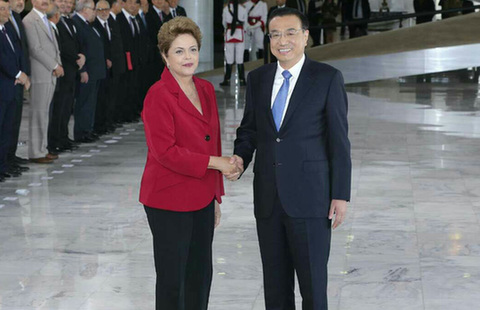
 Premier Li Keqiang welcomed by Brazilian president
Premier Li Keqiang welcomed by Brazilian president
 Weirdest towns in the world
Weirdest towns in the world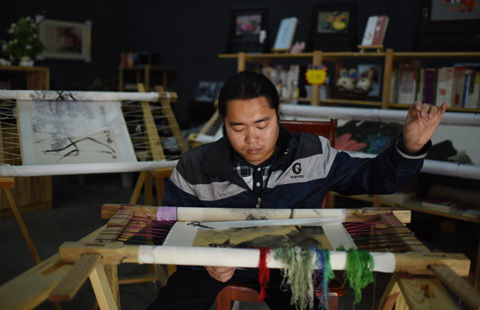
 Students from vocational schools also make big bucks
Students from vocational schools also make big bucks
 Ten photos you don't wanna miss - May 19
Ten photos you don't wanna miss - May 19
Most Viewed
Editor's Picks

|

|

|

|

|

|
Today's Top News
China, Brazil launch new era of economic relations
China premier 'savior' to Brazil government: newspaper
US should end its 'backyard' zero-sum game
Xiaomi debuts in US, Europe with online store
More than 450 scholars urge Japan to address history issues
Brazil embraces third wave of Chinese investment
Taoist teaches US official one or two things about feng shui
White House bans police from using certain military equipment
US Weekly

|

|






